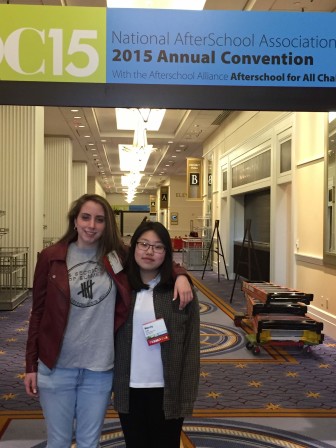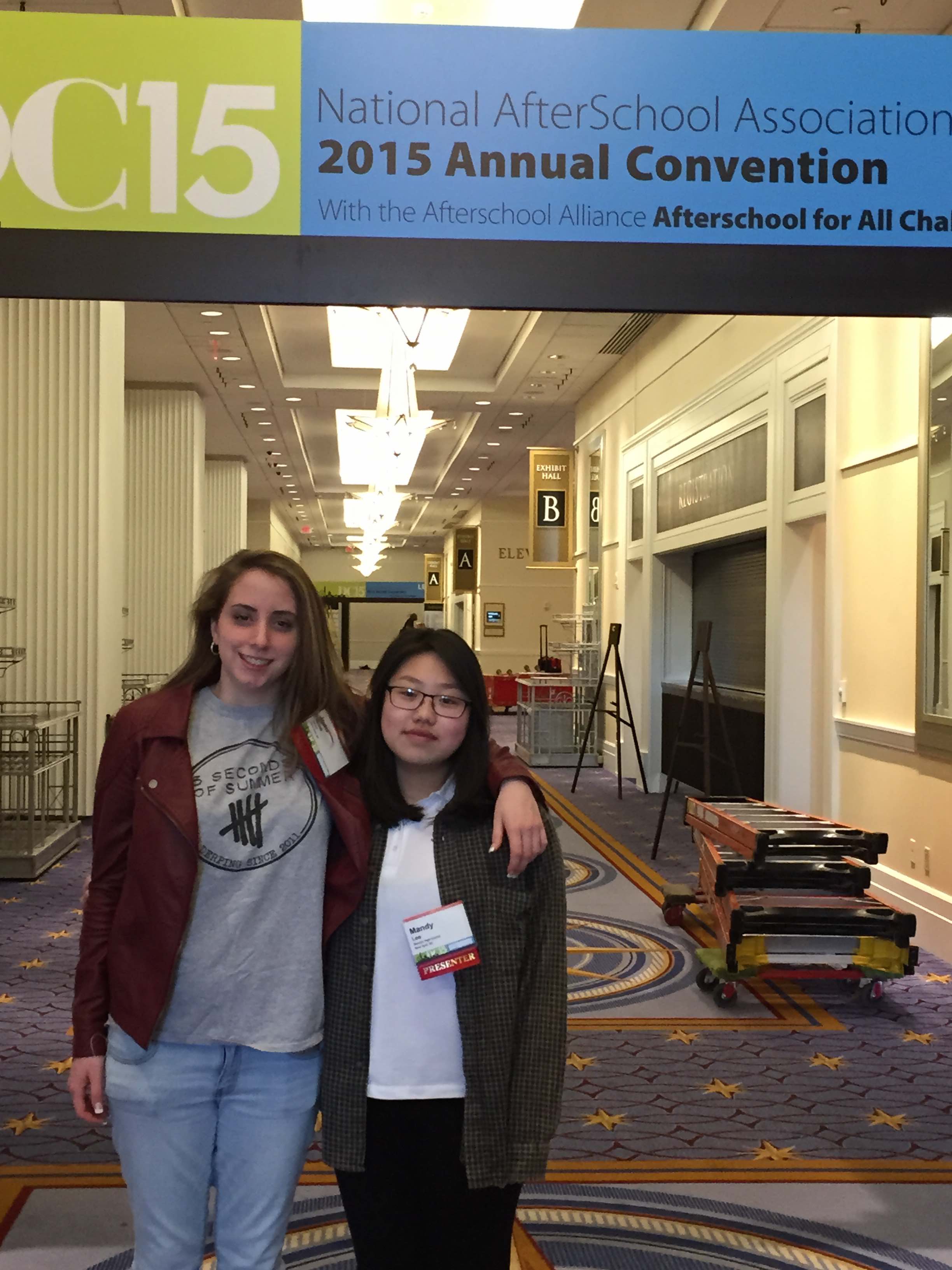
Joan Monti (left) and Mandy Lee at the National AfterSchool Association Convention in Orlando in March. Along with Xiu Ti Wang and Maryann Stimmer, they made a presentation at the convention, which included showing their own scientific work.
Who ends up pursuing science as a career? Mostly not girls and people of color, say three high school sophomores from New York City.
All three are considering science fields, but they know that a lot of girls don’t visualize themselves as scientists, mathematicians or engineers.
“Give kids authentic experiences [doing science],” said Mandy Lee, a student at Beacon High School in New York City. Then they can see what science has got to do with them, she said. After school is the ideal place for that, she said.
Lee, Joan Monti and Xiu Ti Wang met in middle school and took part in Girl Scout Troop 3106 in New York City, where they carried out a variety of hands-on science experiments.
They collected DNA from strawberries, visited the American Museum of Natural History and examined rocks while rock climbing, among other activities.
When girls get involved in observing, collecting data, measuring and theorizing about what they see, they’re doing science.
“It makes them [realize]: ‘We’re scientists,’” Mandy said. They can visualize themselves in that role.
[Related: Do After-school STEM Programs Lead to Science Careers? Should They?]
The biggest predictor of which students go into science and math fields is not how well they do in those subjects in school, said Troop 3106 Scout leader Maryann Stimmer. It’s not even how much they are interested in the subject. It’s whether they identify themselves as “scientist” or “engineer” or “mathematician,” Stimmer said.
Identity influences who ends up in the sciences more than performance and engagement, said Stimmer, who is also senior manager for STEM programs at the Educational Equity Center at FHI 360, a nonprofit whose stated mission is to improve lives around the world.
And identity is shaped outside school more than within school, she said.
“After school is the sweet spot for STEM,” Stimmer said.
Schoolteachers have to focus on student performance. After-school staff can focus on identity and engagement, she said.
After-school programs “have to position ourselves as allies” to teachers and schools, she said.
Mandy’s high school has a strong arts focus, but she is also very interested in computer science.
Xui Ti is a student at Brooklyn Tech High School.
Joan is interested in earth sciences. She attends Baruch College Campus High School.
Mandy and Xui Ti see the prevalence of standardized testing as a negative influence on students. They conducted a survey of 500 high school students to discover how standardized tests make them feel.
To craft their survey, they consulted with experts in the after-school field, and they hope to publish their results.
Monti challenged a reductionist view of women’s interests and activities by collecting information about what women actually carry in their purses. She presented her results and conclusion in a video.
The three, along with Stimmer, made a presentation at the National AfterSchool Association convention in Orlando, Florida, in March.
“We wanted to raise the issue of developing STEM identity in after-school,” Stimmer said.
More related stories:
STEM Education Bill With OST Focus Signed Into Law
Genealogy Camp Draws Kids Into STEM Experiential Learning, Thanks to Henry Louis Gates Jr.






























